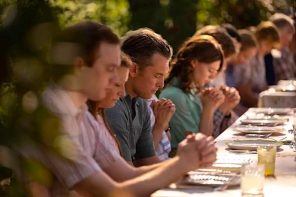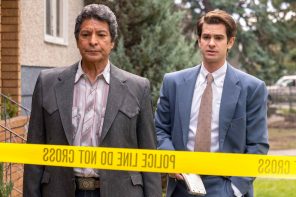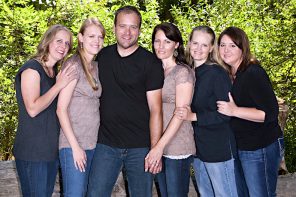Tomorrow in Salt Lake City, legal scholar and George Washington University law professor Jonathan Turley will file suit to challenge Utah statutes criminalizing cohabitation and bigamy. The plaintiffs in the suit? Kody Brown and his four wives, stars of the reality show Sister Wives.
Turley is expected to argue for the decriminalization of polygamy by citing Lawrence v. Texas, the 2003 US Supreme Court decision that decriminalized sodomy on the grounds that states should not interfere with the intimate behavior of consenting adults. The ultimate aim of the suit? Overturning the infamous Reynolds decision of 1878 which decried polygamy as a “despotic” “Oriental” practice unsuitable for American society.
Tens of thousands of Utahns today continue to form and live in polygamous family groupings. Dozens of religious groups tracing their roots to the nineteenth-century Mormon movement founded by Joseph Smith continue to teach that polygamous marriage is a sacred rite necessary to the eternal well-being of the soul. Thousands of “independent” polygamists not affiliated with any of these fundamentalist Mormon movements also practice polygamy, many living in suburban areas of the Salt Lake Valley.
But the question of polygamy also remains wide open for millions of members of the Church of Jesus Christ of Latter-day Saints worldwide. The mainstream LDS Church publicly disavowed the practice of polygamy in this life in 1890, but it has never officially disavowed the doctrine that plural marriage is required to enter the highest levels of heaven. Mainstream LDS men who are widowed and remarry continue to be “sealed” or married for the eternities to multiple wives, while mainstream LDS women may not be married or “sealed” for the eternities to more than one man. To this day, mainstream LDS communities are quietly (and sometimes not so quietly) divided on whether or not polygamy will be a fact of life in heaven. The issue carries tremendous tension for LDS women especially, as blogger Jana Riess observed in an essay entitled “My Polygamous Heaven… Not” published last week. With references to Joseph Smith’s and Brigham Young’s own plural marriages now expunged from many LDS lesson manuals, some younger Mormons have limited awareness of the Church’s history with polygamy. Even contemporary Church leaders have routinely stated that polygamy was practiced by a tiny fraction of nineteenth-century Utah Mormons, 2 to 5%, a number that Riess notes is an “error.” At least 20-30% of Mormons—mostly from the “elite” segments of Mormon society—practiced plural marriage in the late nineteenth century.
Offshoot Mormon polygamous groups in Utah are looking to the Brown case to bring dignity to their families after decades of living more or less “on the underground” and relief from state harassment. But the case is also raising questions among mainstream LDS people. If the illegality of polygamy under the Reynolds decision was a major spur to the LDS Church’s official disavowal of polygamy in the late nineteenth century, how will the LDS Church respond if polygamy is decriminalized?
The Brown lawsuit promises to bring new attention to the matter of polygamy—an issue that is far from settled even in mainstream LDS communities.




